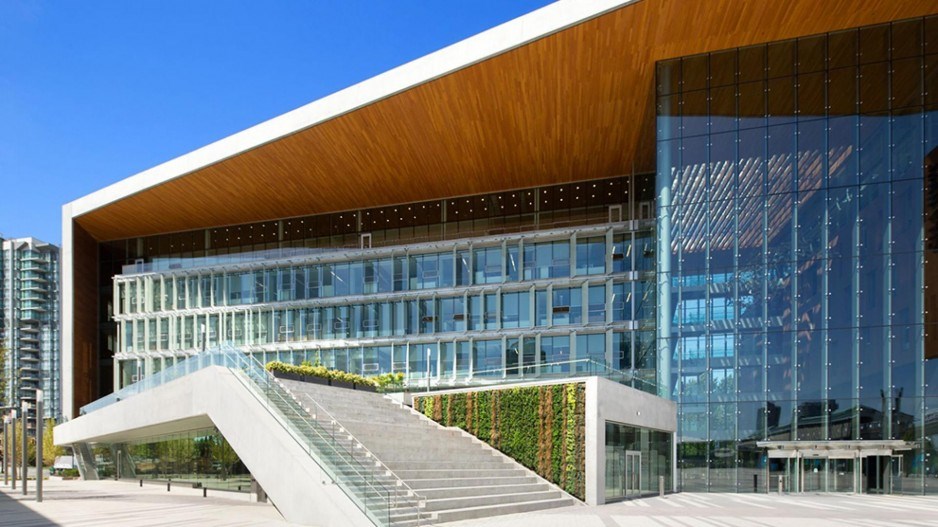In the year since they assumed office, Mayor Brenda Locke and Surrey’s current city council fulfilled their promise to revisit the city’s controversial police force transition, but failed to achieve the result they wanted.
Further, critics say other important municipal issues – including housing, infrastructure and transportation – have fallen by the wayside as Locke and her Surrey –°¿∂ ”∆µ majority focused on stopping the city’s transition from a Royal Canadian Mounted Police (RCMP) force to a municipal Surrey Police Service (SPS).
“It’s been all consuming and unfortunately, I think it’s taken up an awful lot of all of council’s time and not allowed us to get focused on other priorities for the city. And yet, still, at this point in time, at the year mark, we really don’t have a definitive decision as to which direction we’re going,” said Coun. Linda Annis, who is part of the Surrey First party.
Last October, Locke edged out mayor Doug McCallum by 973 votes, according to a City of Surrey election summary report.
In July, the province directed the city to transition to the SPS, even though stopping the transition was one of Locke’s top three priorities, along with public consultation on the city budget and strengthening the office of the ethics commissioner.
As of now, there is no clear plan for how this transition will take place, according to assistant commissioner Brian Edwards, who is the officer in charge of the RCMP in Surrey.
“At this point in time, we do not have a plan that is being followed. A plan is going to have to be developed between the parties and the architecture to build that plan is going to need to be developed. So, for me it is impossible to provide you with a timeline on when that will be completed,” he said at a September council meeting.
Meanwhile, –°¿∂ ”∆µ Solicitor General Mike Farnworth introduced legislation this week that will require the City of Surrey to provide policing with a municipal force.
Annis said that as Surrey continues to grow, there are a plethora of other issues that need attention.
“I listen to the residents complaining about simple things like the repair of roads, lack of sidewalks and the need for more playgrounds and recreation facilities. We haven’t been focused on that because we’ve been singularly focused on the police transition,” she said.
Surrey is –°¿∂ ”∆µ’s second-largest city by population with 568,322 people, according to the 2021 census by Statistics Canada.
MacCallum says he cannot think of a significant project that council has put forward in the last year, and that he hears from community members who believe nothing has happened in the last 12 months.
Locke said in her statement that she still has “very serious questions and concerns” about Surrey’s police transition.
“Resolving these issues is my immediate focus as I head into my second year as mayor,” she said.
Budget and taxation uncertainty
As Surrey toggles between two police departments, costs to residents and businesses have increased, according to Anita Huberman, president and CEO of the Surrey Board of Trade.
The city increased its property tax by 12.5 per cent – down from an originally planned increase of 17.5 per cent. Part of the increase is attributed to funding a policing shortfall, according to Surrey’s 2023-27 financial plan.
“We don’t know what the tax increase is going to be in fiscal 2024. Knowing that there’s two police forces as part of the city budget, there’s great uncertainty into how the city budget is even going to be rolled out,” said Huberman.
An independent financial analysis from the Ministry of Public Safety and Solicitor General concluded that the SPS would cost roughly $30 million more per year than the RCMP. To offset this, the ministry committed $150 million to the city.
Huberman said that it is time to “move the economic dial in the city” and ensure that businesses are being supported.
“Businesses want to see a more focused economic agenda for the city. They feel frustrated,” she said. “The perception is that other things are being left behind and I think businesses want to see a shift in focus, they want to move forward.”
Annis said that Surrey needs to focus on raising revenue without relying on the taxation of residents and businesses.
“Taxes have increased double digits and that’s not acceptable, particularly in times of such huge economic stress on both the residents and the businesses,” she said.
To facilitate public consultation on the city budget, council created a survey and held virtual and in-person open house visits. This resulted in 5,781 digital and open house visits and a total of 3,304 online survey responses, according to the city.
Working to deliver on other promises
In the past year, Surrey council has established seven committees comprised of council members and Surrey residents, and re-established an ethics commissioner.
Annis said that while City Hall has made positive moves to increase transparency, council is still having too many closed meetings.
“Residents of Surrey can’t hear us debate issues that are very relevant to them,” she said.
When asked to identify council’s biggest accomplishment in the last year, Annis said she can’t think of anything.
Locke said there will be an investment of $125 million for an infrastructure program in 2024. Other upgrades include $14.5 million for improvements to the Cloverdale Sport & Ice Complex.
Locke also said a new Surrey Homelessness Prevention and Response Plan is in the works and will be released in 2024.
Twenty firefighters have been hired in 2023, she said, adding that the city plans to hire 100 firefighters over the next five years.



